Fourteen bleak January days have passed since Storm Éowyn tore through Ireland, bringing record-breaking winds of up to 183 km/h, writes Emma Nolan from the RTÉ Documentary Unit.
It was one of the most devastating storms ever to hit the country and its relentless force left a devastating trail of destruction; plunging hundreds of thousands of homes and businesses into darkness. While much of the country has moved on, for many, the struggle is far from over. Stranded in the cold, feeling forgotten, they are still waiting for help.
Over the past week, the RTÉ Documentary Unit has travelled across the country, gathering the stories of those left behind. Their voices will be heard on RTÉ One in Powerless: The Storm That Shook Ireland.
In Galway, we met Joan Howley, owner of the Eurospar in Dunmore, who fought back tears as she described the uncertainty of each day, "It's just the constant stress, the constant not knowing. You get your hopes up thinking, 'Oh, that's it, we're back in the morning,’ and then it’s dashed. You’re on edge all day, waiting for power to return. So many places have been restored, and you feel kind of forgotten, you're like, do they know we're still here and we're still out?"
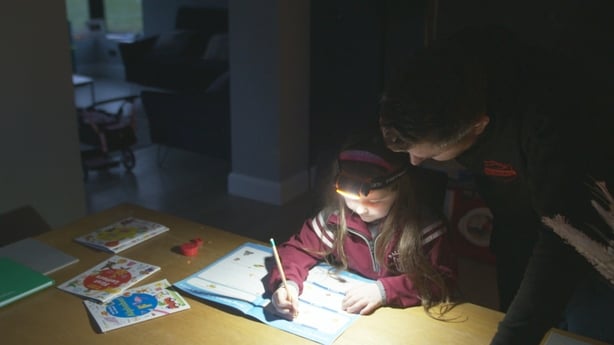
Debbie Conroy is from Balla in Co. Mayo and both her and her husband Darren’s livelihoods were badly affected by not having power and they struggled mentally with the cold and darkness. Recognising the urgent need for better communication and support for those who have been affected by the storm, Debbie and her neighbour Amanda launched the Facebook group Storm Watch West. In just a few days, it has become a crucial platform for sharing power restoration updates, clarifying misinformation, and providing emotional support for those struggling through the crisis.
Members of the newly formed group have kindly shared some of their thoughts and stories with us about what they are going through.
Christine in Kilmovee, Co. Mayo lives on a small road of four houses that remain without power. She describes the toll the past two weeks has taken, "I am autistic. The sudden disruption to my routines, support network of people, regular daily meal options, working environments, etc. has left me just short of a mental breakdown. I'm incredibly high-masking, so I appear on the outside to be "coping" with the situation, but this leaves me even more exhausted and vulnerable...I want to lend my voice to the thousands of us who feel forgotten, like we don't matter, that we aren't important enough, nor have substantial enough roles in society to be worth paying attention to for weeks on end."
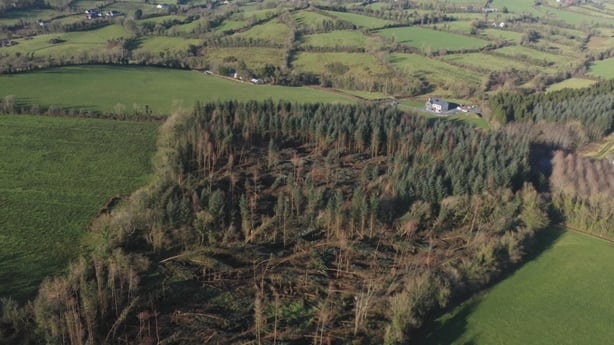
Christine’s experience is not unique - across Ireland, frustration is mounting as communities feel upset and angry at their abandonment. One of the most common of complaints being the lack of clear communication from national authorities.
Angelique in Swinford is furious, "Our power was gone 11 days. I am angry at the lack of communication and support from ESB, Mayo County Council and our government. Last week I was advised that the only hot meal available to us in Mayo was in St John’s in Knock. Half an hour to go for soup which is what was being offered."
Families have faced mounting costs: spoiled food, takeaways, generators, fuel, bottled water, hotels, loss of earnings, storm damage — the list goes on. And now, to recover even a fraction of what they’ve lost, they must navigate a bureaucratic maze of insurance claims and Humanitarian Assistance Scheme (HAS) forms. Financial relief, it seems, will be painfully slow.
Helena from Castlebar feels trapped, "This assistance is a joke. I have €2000 worth of damage done to my roof. Because I have house insurance this assistance won't cover the costs. If I go through my insurance my premium goes up."
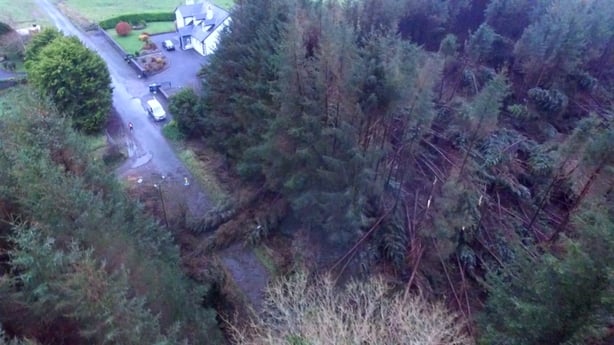
Hannah from Ballyglass, Co. Mayo has endured 14 days without power and is finding it increasingly tough mentally, physically and financially, "The nights are the worst, they’re so long, and the darkness is so intense. We are spending so much money on food, and we can’t do a shop because it will spoil. I’m going out every day to buy food for that day and get petrol for the genny, €9 for a few hours every day and wash my clothes, haven’t had a decent meal in 13 days. I’m cold and my mental health is suffering because of it. I’m a strong person but this has broken me."
Sharon, also from Mayo finds it hard to get out of her bed every day, "Tomorrow is day 14, two weeks of misery, in the middle of winter, two weeks without any help, two weeks of our lives we can never get back, time is precious to us, we're at an age where we value every moment and strive to be in the moment always, but these 13 days of endless moments have taken their toll on us, our resolve is dwindling, but we still have each other, and hope for a better day tomorrow, please god we will see our hopes become reality."
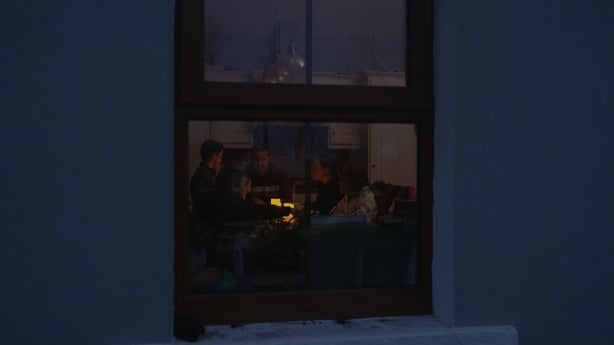
For Evita, in Ballyhaunis, life at home is becoming unbearable - "Trees still down. Wires all ripped. Nobody is coming. It's been 2 weeks. I have been on to ESB about the trees growing through the wires at least twice in the past year. They never took the tops off them. Now the exact same trees have fallen down. I knew it was going to happen. We had our date changed for estimated power restore times about 4 times now. The latest is Sunday.
I don't know how much more I can take. I haven't received any sort of support from the government. Not as much as a bowl of hot or cold soup. I'm still going to work every day, and my daughter is going to school. But for the first time in my life, I'm not looking forward to going home. It's cold and dark. We are one of the forgotten."
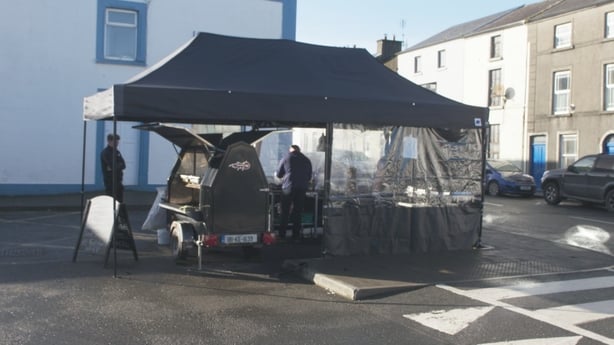
While official aid has lagged, communities have stepped up as best they can. Local businesses, GAA clubs, and hotels opened their doors, offering heat, hot food and drinks, charging stations, and shower facilities. In Carna the local pub organised for hot meals on wheels to go out to those unable to travel. In Dunmore, the local butchers set up a daily BBQ in the town centre to feed the masses. When disaster strikes, you can trust Irish communities to rally.
Communities across Ireland have learned hard lessons over the past two weeks, and many now see the importance of being prepared. The Storm Watch West Facebook group members have compiled a list of essential supplies that have proved invaluable to their families in the aftermath of the storm:
Storm Essentials
· Torches / Headlamps
· Batteries
· Solar and battery-powered lights
· Power banks and portable power stations
· Generators (even small ones provided much-needed relief)
· Gas stove (2-ring is best) & gas bottles
· Gas heater
· Fuel – Wood, coal, turf, fire logs, firelighters
· Stove-top kettle
· Hot water bottles
· Large bottles of water / Water butt
· Tinned and dried food
· Flasks
· Camping fridge (connects to car battery)
· Matches, candles, tea lights
· Cash (ATMs and card machines may be down)
· Battery, solar, or wind-up radio
· Camping shower
· Battery backup for medical equipment
· Downloaded entertainment (music, movies, etc.) before a storm
· Filling the car with fuel & filling the bath with water (use caution with children in the home)
Storm Éowyn has exposed critical weaknesses in Ireland’s emergency response—weaknesses that must be addressed before another disaster strikes. In the meantime, those affected are relying on the resilience of their neighbours and the power of community to get through this crisis.
Watch Powerless: The Storm That Shook Ireland now via RTÉ Player.

